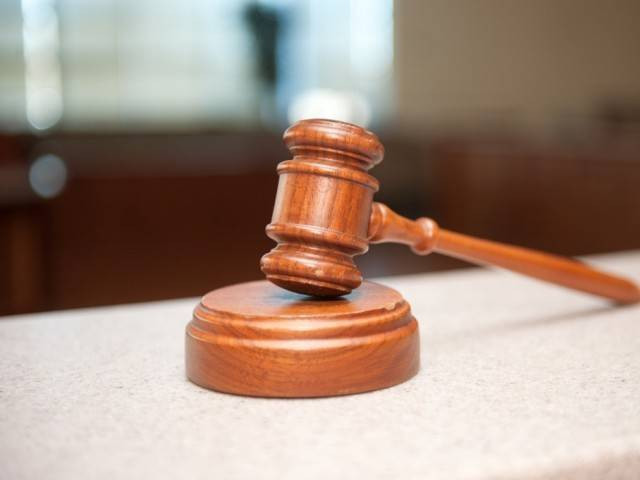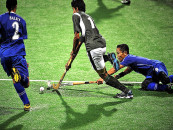Closed courtrooms, counsellor aid: SC on how to record testimony of child witnesses
Asks govt, judges to take appropriate measures for their protection and facilitation

Reference will cite injunctions about prohibition of human corpse’s desecration. PHOTO: FILE.
"We note that, unfortunately, the standard of appreciating the testimony of a child witness, who is the victim of a crime, and the mode and manner of recording his evidence, warrants much needed change and innovation, which has been witnessed in other jurisdictions. And more particularly, the courts are to appreciate the crucial distinction between a child witness, who is a witness to the crime, and one who is himself a victim thereof," reads the judgment, authored by Justice Yahya Afridi.
The judgment notes that the “rationality test”, which is applied by the presiding judge at the commencement of the examination-in-chief of a child witness, should be made applicable throughout the testimony of the child witness.
"If at any stage, the presiding judge observes any hindrance or reluctance in the narration of events, the evidence should be stopped, and remedial measures should be taken to ease the stress and anxiety the child witness might be under, and if required, the case be adjourned to another date. And further, in case the child witness is still unable to narrate his testimony with ease, then the presiding judge ought to record his findings on the demeanour of the child witness, conclude his evidence, and relieve him as a witness," says the ruling.
A three-judge bench of the apex court — headed by Justice Mushir Alam and comprising Justice Ijazul Ahsan and Justice Yahya Afridi — on Friday issued its verdict which it had reserved on May 8, 2019 in the Tayyaba torture case. Former additional district and sessions judge Raja Khurram Ali Khan and his wife Maheen Zafar have been convicted of keeping Tayyaba, then 10 years old, in wrongful confinement, burning her hand over a missing broom, beating her with a ladle, detaining her in a storeroom, and threatening her with “dire consequences”.
The judgment notes that great care is to be taken to ensure that child witnesses are able to depose their testimony at ease, i.e. measures in the court room to lessen their stress and anxiety associated with courtroom appearances in such a tender age.
Such measures, it says, including child witness aid in testifying, screens in court rooms, closed courtrooms and counsellor aid before and after recording of evidence, need to be adopted and practiced.
In this regard, the court said it expected respective governments to take appropriate legislative and administrative measures to ensure protection and facilitation of child witnesses.
The court also asked the presiding trial court judges to take appropriate steps during the proceedings to ensure that child witnesses depose their testimony “with ease” and in a “stress-free environment”.
"In cases where the child witness is unable to depose in the courtroom, and his evidence is ‘necessary’ to find the truth, and it has a ring of ‘circumstantial trustworthiness’, then courts, as practiced in other common law jurisdictions, may consider in appropriate cases, allowing out-of-court evidence, as an exception to the ‘hearsay rule’, it adds.
Present case
The court said that Tayyaba was not treated with due care and caution during the investigation, and the trial, which was conducted by IHC judge Justice Amir Farooq.
"Tayyaba Bibi, who at the time of being taken into custody by Khalid Mehmood Awan, SHO (PW-16) from the house of convict Raja Khurram Ali Khan, was admittedly injured and required medical attention, but she was instead subjected to the process of questioning by the SHO, which he even video recorded.
"We further note that after her medical treatment at PIMS, Tayyaba Bibi, instead of being taken to a childcare centre, was subjected to another bout of questioning, and this time by Ms Nisha Ishtiaq, Assistant Commissioner, Islamabad (PW-7). In these circumstances, it would be fair to note that Tayyaba Bibi, during the period in which she rendered her statements, was not completely free from pressure and influence of the police, local administration and the accused."
The court noted with appreciation that the trial court applied the “rationality test” prior to commencing her examination-in-chief, by recording its finding that Tayyaba Bibi was intelligent to understand questions put to her, and had the capacity to correctly respond thereto. Thus, her testimony during the examination-in-chief can be considered relatively free from adverse negative influences.
"No doubt, during her lengthy cross-examination, she wavered from the initial stance she had taken during her examination-in-chief, when she was confronted with her previous video recorded statement obtained by Khalid Mehmood. However, in view of the findings recorded by the trial judge, regarding her stressed un-natural demeanour during her cross-examination, the said wavering stance cannot be given the same credence, as one may give to any adult witness of a crime. In fact, her cross-examination should have been stopped the moment the trial judge noticed her reception of questions and responses thereto lacked intelligent rationality, which in fact is an essential attribute of a competent witness under Article 3 of the Order. The trial judge then surely erred by allowing her cross-examination to continue in her said disposition. It appears that the trial judge wrongly treated Tayyaba Bibi to be a child witness of a crime, rather than as a child witness who was herself the victim of the crime. This lack of distinction on the part of the trial judge led to his faulty conclusion of completely discarding the evidentiary value of her testimony," the judgment reads.
"We are of the considered view that the prosecution was able to discharge its ‘legal’ burden, convincingly, leading us to the irresistible conclusion that the ‘neglect’, ‘abandonment’, ‘assault’ and ‘ill-treatment’ of Tayyaba Bibi, were at the hands of the accused-convicts Mst. Maheen Zafar, and her husband Raja Khurram Ali Khan.
"We are also mindful that once the prosecution discharged this ‘legal’ burden, then the same resulted in shifting the ‘evidential’ burden on the accused-convicts, under Article 122 of the Order to produce evidence, not to prove their innocence, but sufficient in support of alleged accidental fall of the victim, which they claimed to be the reason behind her injuries. The failure of the accused-convicts to produce any evidence to discharge their ‘evidential’ burden was obviously a great opportunity missed by them to produce evidence to create dents in the prosecution’s case. This omission on the part of the accused-convicts to discharge the ‘evidential’ burden under Article 122 of the Order, however, should not be considered as the determining factor leading to their conviction, which was in fact already sealed on the prosecution successfully discharging its ‘legal’ burden."
The court wrote that prosecution evidence, cumulatively proved beyond doubt the guilt of Maheen Zafar to have inflicted the four injuries (as per Dr Naseer Injury Report Ex. PW-5) on Tayyaba Bibi, and thereby to have committed the offences punishable under sections 337 A(i) and 337 F(i) of the PPC.



















COMMENTS
Comments are moderated and generally will be posted if they are on-topic and not abusive.
For more information, please see our Comments FAQ